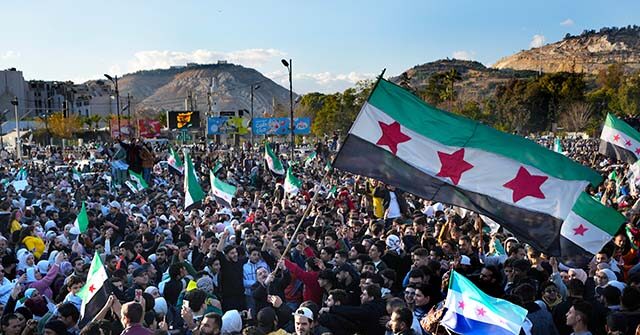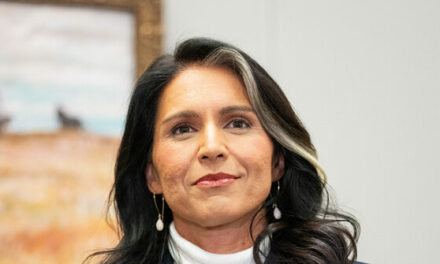We support our Publishers and Content Creators. You can view this story on their website by CLICKING HERE.

A spokesman for the victorious jihadi rebels in Syria said on Thursday the national constitution and parliament will be suspended during a three-month “transition period,” after which a new constitution will be created.
“A judicial and human rights committee will be established to examine the constitution and then introduce amendments,” said Obaida Arnaout, a spokesman for Hayat Tahrir al-Sham (HTS), the al-Qaeda splinter group that led a successful insurgent push to dethrone dictator Bashar Assad last weekend.
Arnaout said the “Salvation Government” (SG) created by HTS in 2017, to administer the territory it occupied in northwestern Syria, would now become the national government. The head of the SG in Idlib province, Mohammed al-Bashir, has been named as the “transitional” prime minister of Syria.
According to the HTS spokesman, SG ministers and the “former ministers” of the Assad regime will meet on Tuesday to discuss the “transfer of power” during a three-month “transitional period.”
“All those who committed crimes against the Syrian people will be judged in accordance with the law,” he said ominously.
Arnaout insisted HTS intents to “preserve and protect” Syria’s institutions, and will “respect religious and cultural diversity” when administering its new government.
Al-Bashir said on Wednesday he has already met with “members from the old government” to “facilitate all the necessary works for the next two months until we have a constitutional system to be able to serve the Syrian people.”
Photos of Bashir’s meeting with Assad officials raised alarm because the conference room decorations included a jihadi flag. HTS has been striving to convince both other Syrian groups and the international community that it wants a “moderate” Islamist government. Realizing their error, the group removed the jihadi flag from subsequent appearances by Bashir.
CNN on Friday quoted Idlib residents who said Bashir and the SG were relatively “pragmatic” in their approach to governance, making efforts to “distance themselves from a jihadist past and gain international acceptance” – but their rule was also “far from democratic or liberal.”
“I don’t think the capabilities of the government we saw are enough for the task of governing the whole of Syria,” said Dr. Walid Tamer, a self-described “liberal” and resident of Idlib.
“Syria as a whole was a difficult place to live in, but the SG never interfered in your personal life. Products were available and no limitations were imposed on your clothing or how you lived your life,” Tamer said.
Other observers noted the SG’s leadership was appointed by a ruling clerical council and by HTS leader Abu Mohammed al-Jolani, rather than being elected, and none of them were women. The SG’s “four principles of government” include recognizing Islamic sharia law as the “sole source of legislation.”

 Conservative
Conservative  Search
Search Trending
Trending Current News
Current News 







